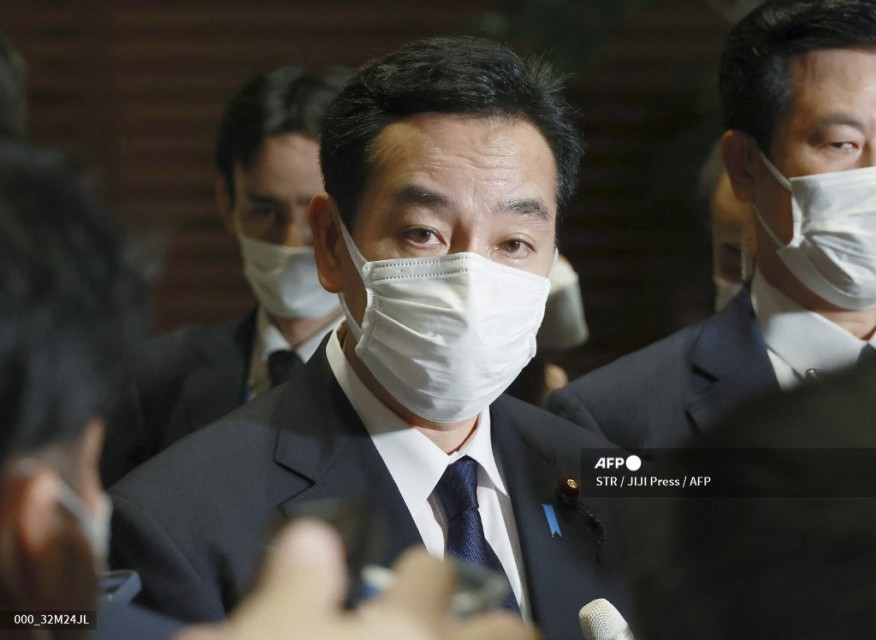
Tokyo, Japan | AFP |
by Natsuko FUKUE
A Japanese minister resigned Monday following scrutiny over his links to a religious sect that is under pressure over ties with top politicians after the assassination of former prime minister Shinzo Abe.
Daishiro Yamagiwa, minister for economic revitalisation, said his conduct had “caused trouble for the government” but did not name the Unification Church.
The movement and its links to senior politicians have been in the spotlight because the man accused of killing Abe in July reportedly resented the organisation over massive donations his mother made that bankrupted the family.
The church, officially known as the Family Federation for World Peace and Unification, has denied wrongdoing.
But a parade of former members have gone public with criticism of its practices in Japan, and last week Prime Minister Fumio Kishida ordered a government investigation into the group.
Its members are sometimes referred to as “Moonies” after Korean founder Sun Myung Moon, who died in 2012.
Yamagiwa has been under fire in parliament following local media reports about his alleged ties to the church — partly because he appeared in a group photo in 2019 with Hak Ja Han, Moon’s wife.
The politician had confirmed it was him in the image, but said in parliament on Monday that his memory about “the photo with her… is unclear”.
He also previously disclosed that he joined an event organised by the church in 2018.
– ‘Regret’ –
“I deeply regret that my attendance at several meetings of the organisation has resulted in giving credit to the said organisation,” Yamagiwa said.
“After this was pointed out to me by an outside party, I had to follow up with explanations. As a result, it caused trouble for the government.”
Kishida said he accepted the minister’s resignation and would announce a replacement on Tuesday. Yamagiwa said he planned to stay on as a lawmaker.
The government’s approval ratings have plummeted to 38 percent, according to the latest poll by public broadcaster NHK, after an internal probe found about half of Japan’s ruling party lawmakers have had dealings with the church.
Now Kishida has ordered a wider investigation that could lead to a dissolution order, which would see the church lose its status as a tax-exempt religious organisation, though it could still continue to operate.
Only two religious groups in Japan have ever received such an order, reports said, one of which was the Aum Shinrikyo cult that carried out a 1995 sarin attack on the Tokyo metro. The other is a group that defrauded members.
Founded in Korea in 1954, the Unification Church is famous for mass wedding ceremonies.
It rose to global prominence in the 1970s and 80s, when it spawned a multi-billion-dollar business empire encompassing construction, food, education, the media and even a professional football club.
Groups affiliated with the church have secured addresses from powerful speakers over the years — including Abe and former US president Donald Trump, neither of whom belonged to the sect.
© Agence France-Presse








